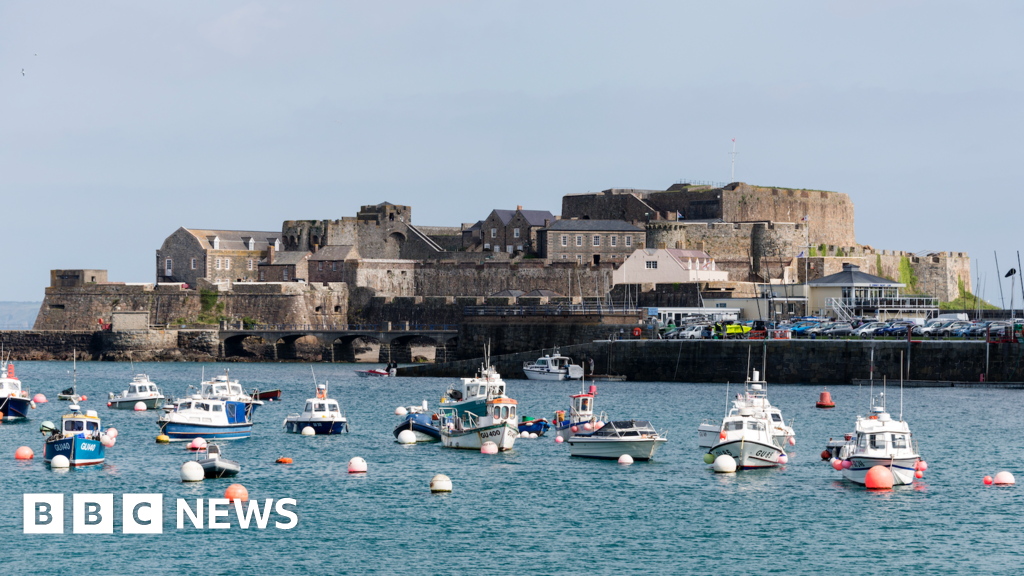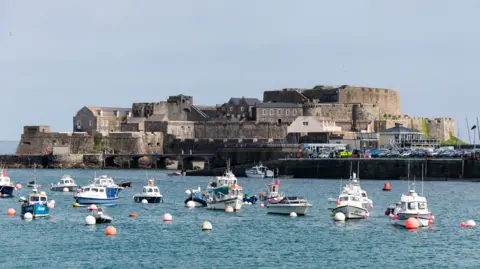ETA digital visa scheme could cost Channel Island ‘millions’

 BBC
BBCA digital visa scheme could cost the Channel Islands “millions” and deliver a reputational hit, a travel expert has said.
The new Electronic Travel Authorisation (ETA) is a permit which non-British and non-Irish citizens, who do not require a visa, will need to enter the UK.
Currently, a scheme allowing French day trippers into the Bailiwick using only identity cards is in place until the end of the 2025 summer season – the ETA scheme requires people to travel with their passports.
The States of Guernsey said that there would be “no impact” for people travelling from the Bailiwick to the UK.
“Travellers looking to come directly to the Channel Islands from abroad are not anticipated to be required to apply for an ETA until towards the end of 2025.”
The States said the ETA scheme was a digital development led by the UK to “enable more robust security checks” prior to people arriving in the UK from the EU or further afield with their passports.
The UK Home Office announced it would begin to enforce the scheme between January and April in 2025, but the States said it was not expected come into force in the Channel Islands until towards the end of 2025.

Simon Calder, travel correspondent at the Independent, said the ETA scheme could have “very serious implications” for Jersey and Guernsey.
He said: “Even if you are just hopping over from Normandy to Jersey or Guernsey for a day trip, you are going to have to have your passport, you are going to have to pay £10 and register online in advance.
“It’s going to be desperate for the tourism industry of course, which has had a really tough few years.”
Mr Calder said he had “calculated the financial damage” the scheme could cause for the UK and the Crown Dependencies as “somewhere around £4bn a year.”
He added: “We are into the millions for the impact it will have on Jersey and Guernsey, and of course unfortunately reputationally it doesn’t do the Channel Islands any good either.”

Deputy Kirsten Morel, Jersey’s Minister for Sustainable Economic Development, said: “I strongly believe that we need to maintain the ID card system into the future, regardless of the ETA.
“We can prove to the UK that it’s a secure system and there is no reason in my view as to why we should change that.
“To lose thousands of day trippers to the islands will have a significant impact economically.”
Robert Mackenzie, from the Channel Islands Travel Group, said it was “disappointing.”
He said: “The area that’s going to be most affected will be the day trip visitors from France, they tend to be more of a short-term decision.
“If they haven’t got the required documentation clearly they won’t be able to come unless there is some kind of agreement between France and the Channel Islands as exists at the moment, but perhaps that looks less likely now with this new scheme.”
A Home Office spokesperson said it remained “committed to working with all Crown Dependencies to ensure our border and immigration policies support the effective operation of the Common Travel Area”.
Related
Brits forced to pay fee to visit these 30 countries…
UK tourists will be required to pay a fee to visit 30 countries in Europe under new European Union (EU) travel rules.The rules mean British holidaymakers will n
The beautiful European island with just 148 locals
Irakleia is a beautiful island in the Minor Cyclades of Greece, nestled in the heart of the Aegean Sea and just an hour away from Naxos. Officially recorded t
Warning issued for Brits flying easyJet and Ryanair to popular…
Passengers flying with Ryanair, easyJet and British Airways should expect disruption (Picture: Urbanandsport/NurPhoto via Getty Images) Passenge











